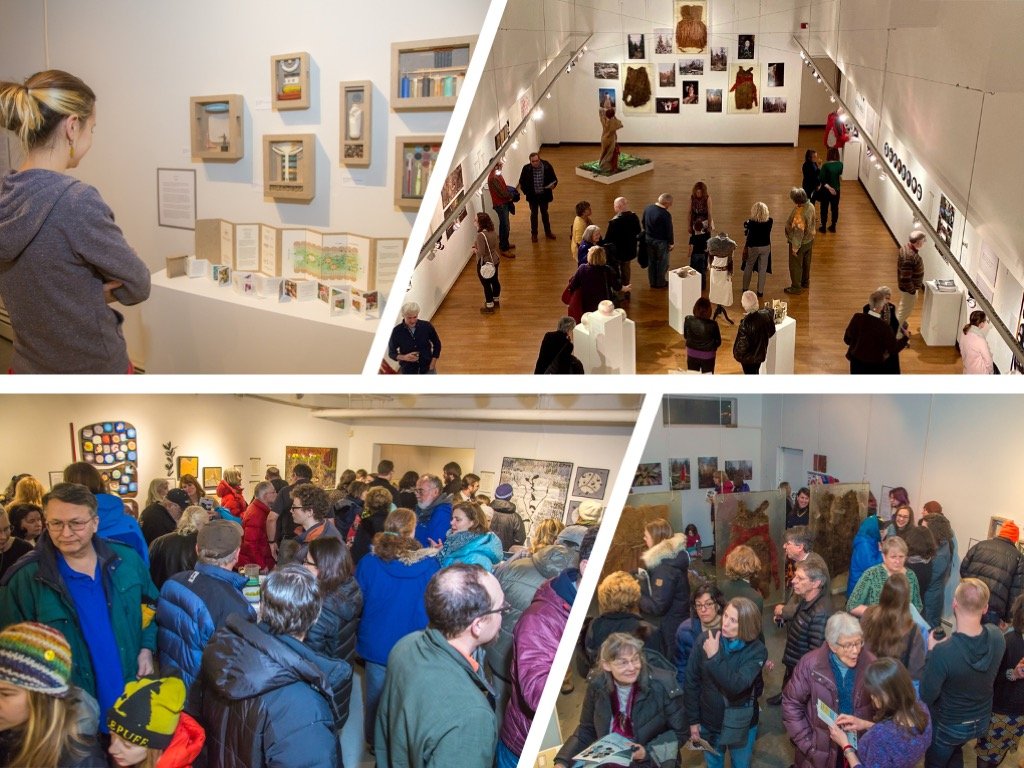ARCTIC FESTIVAL in Alaska brings together local communities to discuss arts, science, and climate change
Team Experimentalist
“We have come as far as we have because we are the cleverest creatures to have ever lived on Earth. But if we are to continue to exist, we will require more than intelligence. We will require wisdom.” – David Attenborough, A Life on Our Planet.
Taking place this week in the interiors of Alaska is the first-of-its-kind festival that brings together arts and science communities to have a conversation about changing weather, biodiversity, and lifestyles. What makes it unique is the involvement of indigenous culture along with an innovative approach to finding solutions for emerging climate issues.
The main event, Starting the Conversation on September 1st involves ecologist Terry Chapin, Da-ka-xeen Mehner (director of the Native Art Center), Enei Begaye (Native Movement leader), Kristin Timm (science and environmental communication researcher), Bruno Grunau (NREL Cold Climate Housing Research Center), and microbiologist Mary Beth Leigh on the panel.
We talk to microbiologist Mary Beth Leigh, University of Alaska Fairbanks about the vision of the Festival.
“What we are facing today are the problems that go beyond the boundaries of just one discipline. A lot of people think, ‘oh, climate change. That's a science problem, right?’
Science does play a critical role in describing how the world works, how ecosystems function and also observing and reporting how humans are impacting the environment, and how things are changing but what science doesn't address, are things like values, feelings, and emotions. That's in the realm of the arts and the humanities and that's what these other perspectives can bring in. What we are doing here is bringing in a different perspective to the climate-change conversation and building a public community that is aware and willing to collaborate towards the solution”, explains Prof. Leigh.
The aim of the Festival is also to make sure people do not perceive climate change as a depressing thought, but use creativity to find sustainable solutions. On September 2nd, an art exhibit will be inaugurated by the Native Art Centre at the University of Alaska Fairbanks. The focus here is to educate people about Alaskan traditions and folklore.
Previous exhibitions as the part of In a Time of Change event : Link
Prof. Leigh and colleagues are also running an Arts Humanities Science program called In a Time of Change. Started in 2007, this program brings writers, artists, and educators together to work on different environmental themes. This year, the theme is the boreal forest, the vast northern forests in the interiors of Alaska.
“It is called the Boreal Forest Stories. It highlights lots of different aspects of life- the animal, the small creatures, the humans, the environment, and the plants in the boreal forest. We are planning an art exhibit, a live performance, a literary reading, and organizing some field trips. One of our members is a dancer and does outdoor mindful movement workshops. This will take place in the forests, where people can engage with the ecology, its sounds and smells.”, adds Prof. Leigh who moved to Alaska in 2006 and since has been actively involved in the Art Humanities Science outreach program at the University.
Boreal Colloquy by Susan Campbell. From In a Time of Change: Boreal Forest Stories. Photo by Chris Arend. It is an artist book made of eight flitches (panels) cut from six trees (birch, white spruce, black spruce, tamarack, balsam poplar, aspen) and two shrubs (willow, alder) that dominate Interior Alaska’s boreal forest
We asked Prof. Leigh about her experience of living and doing research in Alaska.
“Alaska has a very welcoming and collaborative community. Many people are brought here because of their shared appreciation for the environment. So there's a lot of ecological research, as well as social-ecological research. We have a strong focus on human health, recognizing the health of humans and animals on the land are all connected. But it's an adventure too. I had to learn to do logistics and fieldwork in the Arctic quickly.”
“ Our fieldwork involves interactions with local rural communities with populations of 200 people or fewer. They are not connected by the road systems. So you can only fly in a small airplane, onto a dirt airstrip, or maybe land on the water. In recent years, there has been a movement to do more community-engaged research where the locals have a role in determining research questions. We have a lot of town hall meetings to share questions and progress, do local hires so that the money supports the community, and outreach with the kids.”
Elaborating more on working closely with locals, Prof Leigh cites the project her group is currently working on, “I have a field site in a small village where we're using the native plants to help clean up the contaminated soil in a schoolyard. We moved the soil away from the schoolyard and planted local willows. Now every year, we monitor the oil concentrations and study the plant-microbe interactions involved in purifying the soil.” This is just an example of how research can focus on finding local solutions and also motivate the community to get involved.
Currently, Alaska is facing drastic climate change that includes increased instances of wildfires and the result in the thawing of permafrost. The permafrost in the region is more than 40,000 years old and contains frozen organic material that never decomposed. Its thawing causes the release of greenhouse gases such as methane which adds more heat to the warming planet.
A part of the Arctic Festival is focused on innovative solutions to these problems. Through their event Innovation Hub, an expert panel will discuss sustainable technological advances that can be applied in the region. Some of these ideas include local energy production, electric airplanes, and so on.
Although this year the Festival will be locally focused, the committee plans to grow it to attract national and international audiences in the coming years. The dates are chosen close to the US Labour Day in hopes that people would visit the Festival in person. The highlight of the event this year is the concert by Alaskan-based Inuit soul group, Pamyua. The tickets for the event are available here. Most other events at the festival are free and open to all, find out more on arcticfest.org.
Image courtesy: Pamyua



